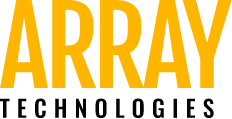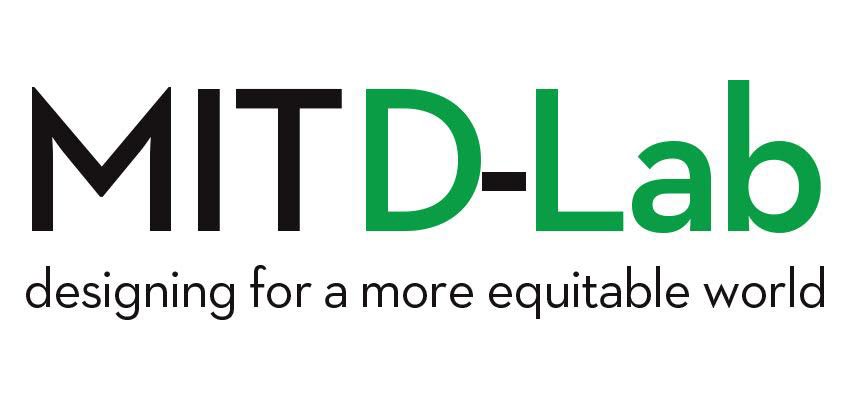External Sponsors
GE Vernova
Building on over 130 years of experience tackling the world’s challenges, GE Vernova is a purpose-built global energy company that includes Power, Wind, and Electrification segments and is supported by its accelerator businesses to lead the energy transition.
RWE
RWE is a multinational energy company with an extensive knowledge of the energy markets and an excellent expertise in all major power generation and storage technologies, from nuclear, coal and gas to hydro, batteries, wind and solar.
ARRAY Technologies
ARRAY Technologies is a global leader advancing the future of clean energy with efficient utility-scale solar trackers.. With over 30 years of innovations that have powered the solar industry, ARRAY is uniquely positioned to deliver renewable energy solutions for customers seeking clean energy adoption in markets around the globe.
COMSOL
The COMSOL Multiphysics® modeling and simulation software is used in all fields of engineering, manufacturing, and scientific research to simulate designs, devices, and processes. The platform is an integrated environment for creating physics-based models and simulation applications.
Sphinx AI
Sphinx AI is redefining how machine intelligence reasons about data. Our AI copilot thinks in statistics and patterns — not just language or code. We work with data professionals to transform raw information into actionable insight: refining forecasts, optimizing operations, and powering applications from supply chains to sabermetrics.
Iberdrola
Iberdrola is an industry leader in energy infrastructure providing essential services across 24 states, powering homes, businesses, and critical infrastructure.
Internal Sponsors
MIT Department of Nuclear Science and Engineering
The Department of Nuclear Science and Engineering (NSE) at MIT provides educational opportunities for undergraduate and graduate students interested in advancing the frontiers of nuclear science and engineering and in developing applications of nuclear technology across four areas: Fission; Fusion and Plasmas; Security and Policy; and Quantum Engineering. NSE prepares our students to make contributions to the scientific fundamentals of Advanced Computing, Modeling and Simulation; Extreme Materials and Environments; Nuclear Reactions and Radiation.
Our vision is a sustainable future where nuclear science and technology are leveraged for the benefit of humankind and the planet. Our mission is to develop the next generation of leaders of the global nuclear community, advance basic research, provide technical leadership on energy and non-energy applications of nuclear technology, and inform public discussion about nuclear science and technology, in order to address global grand challenges.
We are a dynamic and welcoming community with the motto Science, Systems, Society; pulling in talent from all over the world to address the grand challenges of our time.
MIT Energy Initiative
The MIT Energy Initiative (MITEI), MIT’s hub for energy research, education, and outreach, is advancing zero- and low-carbon solutions to combat climate change and expand energy access. MITEI is a crucial rallying point for MIT researchers and educators who share our vision and commitment to dramatically reduce emissions through the development of novel technologies and delivery of science-based analysis. Together we are dedicated to decarbonizing global energy systems and building upon MIT’s long tradition of working collaboratively and transparently with industry, government, and civil society.
MIT.nano
MIT.nano is the Institute’s central resource for nanoscale discovery and innovation, set in the heart of the campus in the Lisa T. Su Building. We are the largest, most advanced, and most accessible university research facility of our kind in the United States, with more than 200 tools and instruments in high-performance laboratory spaces, available to qualified researchers from across MIT, as well as external users from industry, academia, and government.
MIT School of Science
The MIT School of Science advances fundamental understanding of the natural world through cutting-edge research, hands-on discovery, and interdisciplinary collaboration. Home to world-leading programs in biology, chemistry, mathematics, physics, and the earth, atmospheric, and planetary sciences, the School fosters curiosity-driven exploration while training the next generation of scientific leaders. Its faculty and students push the boundaries of knowledge to solve pressing global challenges and expand humanity’s understanding of the universe.
MIT D-Lab
MIT D-Lab works with people around the world to develop and advance collaborative approaches and practical solutions to global poverty challenges.
MIT Aero/Astro
In the MIT Department of Aeronautics and Astronautics, we look ahead by looking up. At its core, aerospace empowers connection — interpersonal, international, interdisciplinary, and interplanetary. We seek to foster an inclusive community that values technical excellence, and we research and engineer innovative aerospace systems and technologies that have a world-changing impact. We educate the next generation of leaders, creative engineers, and entrepreneurs who will push the boundaries of the possible to shape the future of aerospace. We do these things while holding ourselves to the highest standards of integrity and ethical practice. Working together with our partners in the public and private sectors, we aim to expand the benefits of aerospace to create a more sustainable environment, strengthen global security, contribute to a prosperous economy, and explore other worlds for the betterment of humankind.
MIT Graduate Student Council
Since 1953, the Graduate Student Council’s core mission has been to represent and advocate for graduate students across all departments and backgrounds to MIT and beyond.
MIT Chemical Engineering
Formally established as a separate department in 1920, MIT’s Chemical Engineering department (ChemE) has not only set the standard for instruction and research in the field, it continues to redefine the discipline’s frontiers. With one of three undergraduate programs focusing on chemical-biological engineering for students interested in the emerging biotech and life sciences industries, and two of three graduate programs providing an experiential course of study in chemical engineering practice in collaboration with MIT’s Sloan School of Management, ChemE at MIT is quite unlike chemical engineering anywhere else.
MIT Office of Sustainability
The mission of the MIT Office of Sustainability is to transform MIT into a replicable model that generates just, equitable, applicable, and scalable solutions for responding to the unprecedented challenges of a changing planet. To achieve our mission, we seek to advance a collaborative process that engages and elevates a diverse set of voices to foster operational excellence, education, research, and innovation on our campus.















